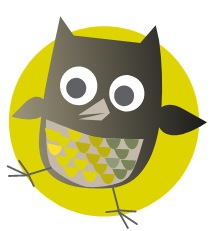Dictionaries can be a great way for your child to find out new words and improve their vocabulary – but not just any will do. For your child to get the most out of a dictionary, it has to include words they are likely to hear and use at home and school. It also needs to have definitions and examples that will make sense to them.
Publisher Sam Armstrong explains how Oxford Children’s Dictionaries are made to work perfectly for different ages, and how the Oxford Children’s Corpus is used to figure out which words to include by analysing real children’s language.
Why do we need dictionaries for children?
What’s it like to work in children’s publishing, as the Publisher for Children’s Dictionaries? Sam talks about what her job involves and why she loves it!
Making dictionaries for children is all about tailoring them to suit different ages and abilities. Choosing the right design, layout, colour, and fonts all help make our books easy to understand and enjoy. Everything is tested out in the classroom, and educational experts give guidance on curriculum vocabulary.
We try to make our books fun to look at, with plenty of illustrations and help for the younger children. The alphabet is on the side of every page, and the letter you are in is highlighted. This helps make them easy for every child to use.
Our children’s dictionaries are compiled specially for children – they are not cut-down, edited versions of our adult dictionaries. As the reader gets older, the complexity and the quantity of definitions tends to increase – a first dictionary wouldn’t describe ‘foot’ in terms of poetic metre, for example.
We make our dictionaries using something called the Oxford Children’s Corpus.
What is the Oxford Children’s Corpus?
The Oxford Children’s Corpus is a huge database of language – a unique word bank that has been built up over the last 10 years by Oxford University Press. It contains over 300 million words, from countless examples of writing both for and by children. The writing comes from lots of places, like websites and books for children, as well as the stories from BBC Radio 2’s 500 Words competition.
We can search the Oxford Children’s Corpus to research how children are using language. This makes our dictionaries completely evidence-based – by finding out exactly how children use language, we can tailor our books to fit them exactly. We include the words that children actually use, not the words we think they use.
We can also analyse the writing to see where we can help young people. For example, we can see the gaps between more and less able writers, and produce material that supports children across the range; we can identify bespoke subsets of language, such as a specific 19th century corpus for children studying the Victorians; and we can stay completely up-to-date, with relevant content and supporting resources like crosswords and anagram puzzles.
Our data means that we tend to be first to spot emerging trends, too, like the increasing use of ‘gaming’ vocabulary, like ‘ramp’, ‘glitch’ and ‘level’, in children’s writing about real life situations. This all helps us make dictionaries that are as useful as possible for developing vocabulary at every age.
More from Oxford Owl
Oxford Primary Grammar, Punctuation and Spelling Dictionary
Age 7+
The Oxford Primary Grammar, Punctuation, and Spelling Dictionary is the essential reference book. In full colour, it has easy-to-use rules and help, plus an alphabetical list of the tricky, and everyday, words including those most commonly misspelt, all backed by analysis of Oxford’s unique database of children’s writing.
Oxford Phonics Dictionary
Age 5+
Using the Oxford Reading Tree Floppy’s Phonics Sound and Letters Programme and synthetic phonics, the Oxford Phonics Spelling Dictionary helps children become proficient readers and spellers. With 4000 words, ordered by sounds and spellings and linked to the Alphabetic Code Chart, it makes preparing for the phonics screening check simple and fun.
Oxford First Dictionary
Age 5+
Major new edition of the Oxford First Dictionary in paperback includes new words and more pages to improve spelling, extend vocabulary and support comprehension in the curriculum. Its accessible alphabetical layout and new supplement on spelling and grammar tips and activities, makes it the perfect first dictionary for home and for starting school!
Oxford Primary Dictionary
Age 8+
New edition of the bestselling Oxford Primary Dictionary with more words added, more spelling support, and enhanced supplements for grammar and language help. Easy-to-use with clear entries and examples from the books children love reading, plus curriculum help, it is the ideal dictionary for children aged 8+.
Oxford Roald Dahl Dictionary
Age 8+
This is not an ordinary dictionary. Lots of dictionaries tell you what an ‘alligator’ is, or how to spell ‘balloon’, but they won’t explain the difference between a ‘ringbeller’ and a ‘trogglehumper’. All the words that Roald Dahl invented are here, with real citations from Roald Dahl’s children’s books and illustrations by Quentin Blake, to inspire and encourage young writers and readers.






